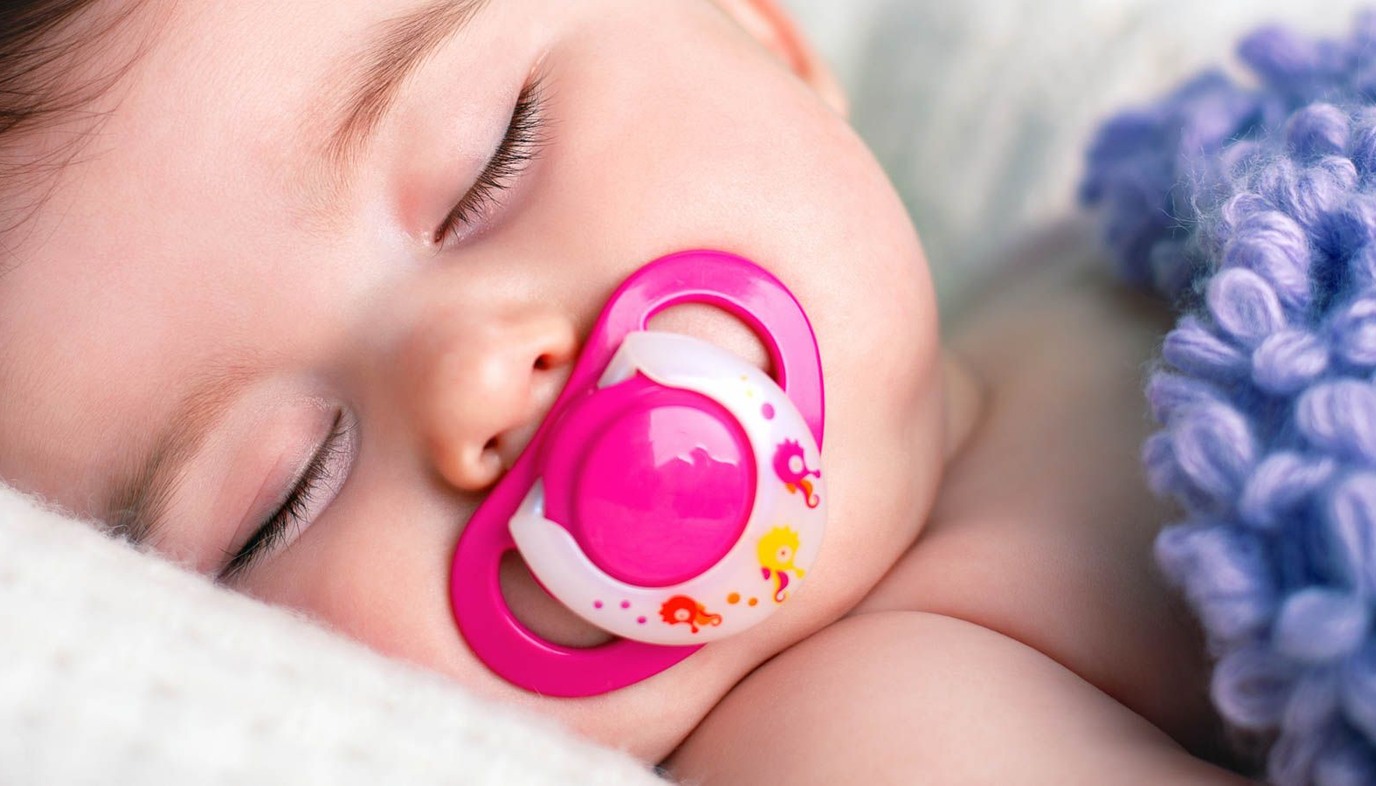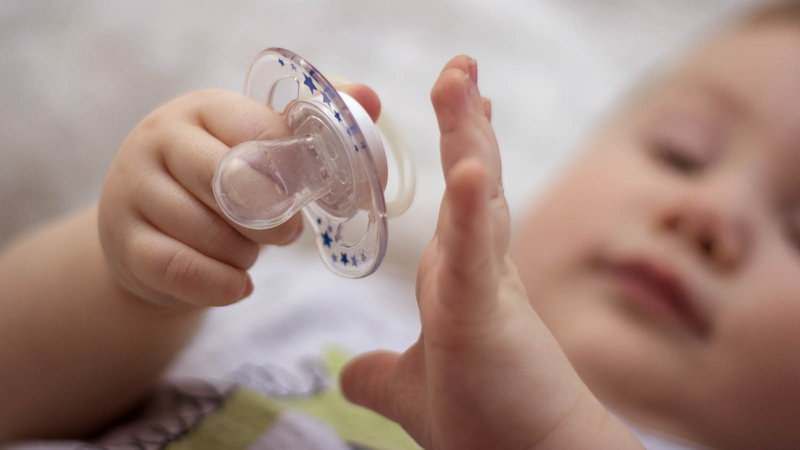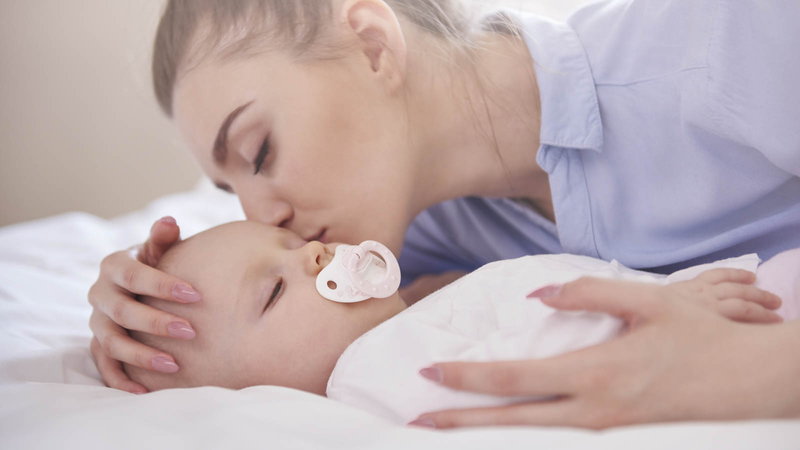
A pacifier is an artificial nipple designed for babies to suck on for comfort. Pacifiers have always been a popular way for parents to soothe their little ones when all else fails. It’s important to understand that your child can become dependent on them rather quickly, so before you pop that binky in your infant’s mouth, consider the pros and cons to using one.
Pacifier Pros
Most babies cry for an average of three hours a day because they do not have methods for soothing themselves yet. Giving your baby a pacifier to suck on is a good way to calm them down, because their energy goes into sucking rather than crying.
Parents find pacifiers especially helpful when they are preparing a bottle, getting ready for a diaper change, or putting their baby to sleep. A binky will often keep your baby content while you get everything in order. Pacifiers are also commonly used in public places to keep your baby quiet, so that the people around you are not subjected to a screaming child.
Studies have shown there are some health benefits linked to pacifiers as well. Preemies who suck on pacifiers will gain weight faster. Sucking promotes oral-muscle function and muscle development. There is also some evidence that a pacifier may decrease the risk of SIDS when used at bedtime or naptime.

Pacifier Cons
Offering a pacifier early on can interfere with breastfeeding. Babies may get confused with the different nipples they are presented, and those with problems latching on may find it more difficult to nurse if they also use a pacifier. If you’d like to use a binky, wait about 4-6 weeks so that a breastfeeding routine is well established.
Pediatricians recommend that pacifiers be taken away when babies hit six months in age because pacifier sucking promotes fluid collection in the ears, which leads to ear infections. To make it easier to get rid of a pacifier, try reading, rocking or singing to your baby. Although this requires more time and energy, it will gently break your child of the pacifier habit.
Children who suck on anything - fingers, thumbs or pacifiers - past the age of 3 have a higher risk of developing dental problems. Pacifier use can contribute to protruding front teeth or an overbite. Many dentists believe that the use of a pacifier should cease once all of the baby teeth have erupted.
Pacifiers tend to get dirty easily, which leads to germs and poor hygiene. Make sure you clean your baby’s pacifier daily with boiling water or by washing in a dishwasher. Do not store them in plastic bags, where dampness can encourage fungal growth. It’s also a good idea not to share your baby’s binky with other playmates.
Parents who become dependent on pacifiers to soothe their baby create more work for themselves, since the baby may be relying on a pacifier to fall asleep. Hurrying back and forth all night to pop a binky back into your baby's mouth every time it falls out will get exhausting pretty quickly.

Breaking the Habit
Many babies begin to lose interest in pacifiers at about 4-5 months of age, as the need to suck subsides. They will suck on it less or spit it out. Fight the urge to replace the pacifier in your child’s mouth when this happens. Other ways to wean your baby off slowly include dipping the pacifier in pickle juice to make it less appealing and rewarding pacifier-free days. Don’t worry; it may take several weeks for your baby to give up their pacifiers, but with constant encouragement, the habit will eventually drop.
